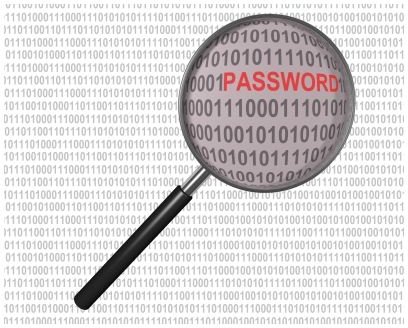How to Prevent Identity Theft After Responding to a Fraudulent IRS Email
Avoid Being a Victim of Identity Theft
Unfortunately, some people learn too late that they are potentially victims of identity theft scams. Sometimes this is because they have followed a phishing link in an email that initially appears to be legitimate. These victims may find out several months after the fact due to unusual financial activity that they actually responded to an email that was a scam. This means they need to take the needed steps to closing the barn door after the fact. However, some people realize almost immediately that they may be victims of ID theft scams. For those people, there are some steps that can be taken immediately to help alleviate future problems. Some of these steps include:
Print a copy of all correspondence - Make copies of all correspondence that resulted in the unauthorized sharing of personal information. Make sure that all of the header data in the emails are included in the printout. These records will be necessary for filing reports with credit bureaus and law enforcement authorities. Make sure that once this is completed that the originals are deleted from your computer. Cookies and cache information should also be cleared to prevent further compromise of personal data;
Placing a fraud alert on credit reports - Those who have responded to phishing emails or other email scams should immediately contact the credit reporting agencies and notify them that they have accidentally shared information that could be compromised due to false emails. All three credit reporting agencies should be contacted as follows:
- TransUnion: 1-800-680-7289; www.transunion.com; Fraud Victim Assistance Division, P.O. Box 6790, Fullerton, CA 92834-6790
- Equifax: 1-800-525-6285; www.equifax.com; P.O. Box 740241, Atlanta, GA 30374-0241
- Experian: 1-888-EXPERIAN (397-3742); www.experian.com; P.O. Box 9554, Allen, TX 75013
Notify the federal trade commission - The Federal Trade Commission (FTC) has a consumer complaint division where consumers who have been victimized may file an official complaint. Users may fill out an online form on the consumer protection page or they may notify the FTC in writing at Identity Theft Clearinghouse, Federal Trade Commission, 600 Pennsylvania Avenue, NW, Washington, DC 20580 or by telephone at the FTC’s Identity Theft Hotline, toll-free: 1-877-ID-THEFT (438-4338); TTY: 1-866-653-4261. In some cases, consumers may also want to consider filing reports with their local law enforcement authorities and ask them to make a record of the call.
Personal banking and credit card information - Those who have responded to phishing scams and have provided their personal banking or credit card information should immediately notify the bank or credit card company in writing or by telephone and have their accounts frozen or closed. This can help prevent identity thieves from using passwords, credit card information or banking information to withdraw funds from an account. Users who have disclosed payment information for PayPal or other online payment services should also consider freezing those accounts.
Monitor credit bureaus and credit card activity - Once a fraud watch has been placed on a credit report, users will be notified of new credit applications that are made. However, it is still the responsibility of the consumer to monitor their credit report for any new accounts that they may not have opened on their own. It is also critical that existing credit cards and debit cards are monitored for any unauthorized activity. If any activity occurs that is suspicious it is important the authorities are notified immediately.
ID Theft and the Internal Revenue Service

Because of the increase in tax fraud as a result of phishing scams, there are other concerns which must be taken into consideration. For example, some phishing victims may need to know how to prevent identity theft after responding to fraudulent IRS emails. Since the IRS does not contact taxpayers via email there are some immediate steps that must be taken to avoid identity theft and problems with the Internal Revenue Service. These include:
Copying all correspondence - As stated previously, it is imperative that all correspondence be copied including the email headers. This correspondence should be copied as needed to notify the proper authorities of a possible breach of your identity including social security information.
Notify local law enforcement agencies - Providing a copy of the emails that you received that were reportedly from the Internal Revenue Service, as well as photocopy of your driver’s license or other state-issued identification, file a report with your local law enforcement agency. This can put them on alert in the event that a new driver’s license is requested or if someone creates a false identification using your information;
Notify your employer - For those who believe that identity thieves may take advantage of access to information another step they can take is to notify the Human Resource department at their place of employment. Warning them may help if they are contacted for an employment reference;
Notify the credit bureaus - Using the information previously provided, request that the credit bureaus place a freeze on credit information. Since many employers now require a credit report to secure employment, this is a good line of defense;
Notify the Internal Revenue Service - For consumers who believe their social security information has been compromised, providing the IRS with the information that was provided as well as copies of the email received can help prevent a fraudulent tax filing. Provide the IRS a copy of all correspondence plus a copy of your valid identification. This information should be sent to the Internal Revenue Service along with a copy of IRS Identity Theft Affidavit - <strong>Form 14039</strong> to Internal Revenue Service, P.O. Box 9039, Andover, MA 01810-0939 or sent via fax to the IRS at 1-978-247-9965. Questions may be directed to the IRS Identity Protection Specialized Unit, by calling their toll-free number 1-800-908-4490.
Identity theft can result in numerous problems including duplicate tax filings, people working using your social security number and serious financial problems. Victims should take all of the necessary steps in order to protect themselves from all fraudulent activities.
Resources
Sources:
Internal Revenue Service
Federal Trade Commission
Image Credits:
- Identity via freedigitalphotos.net/Salvatore Vuono
- Online Protection via freedigitalphotos.net/Danilo Rizzuti
